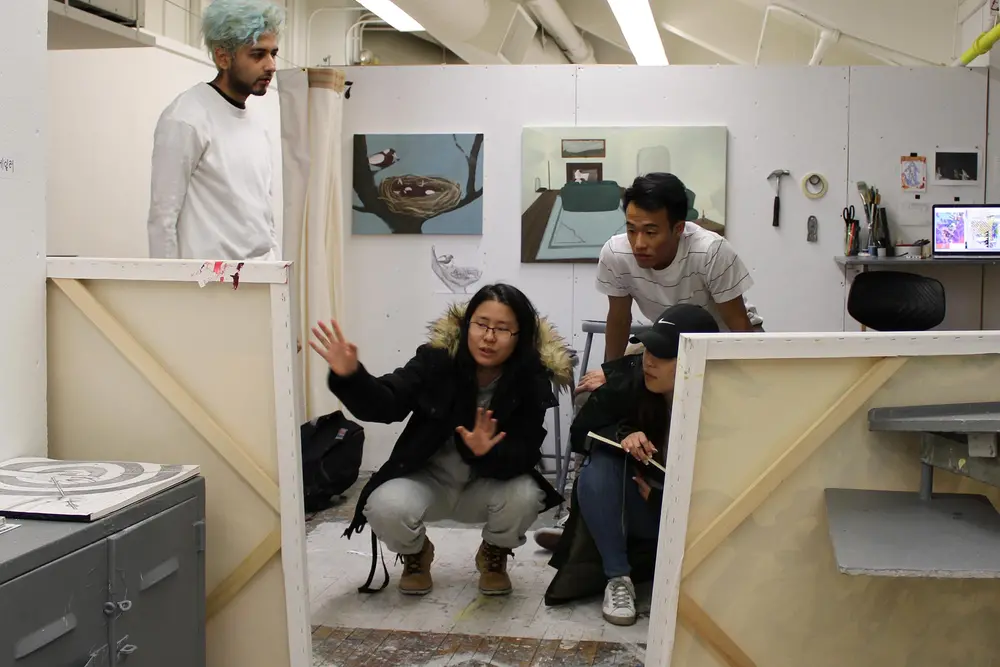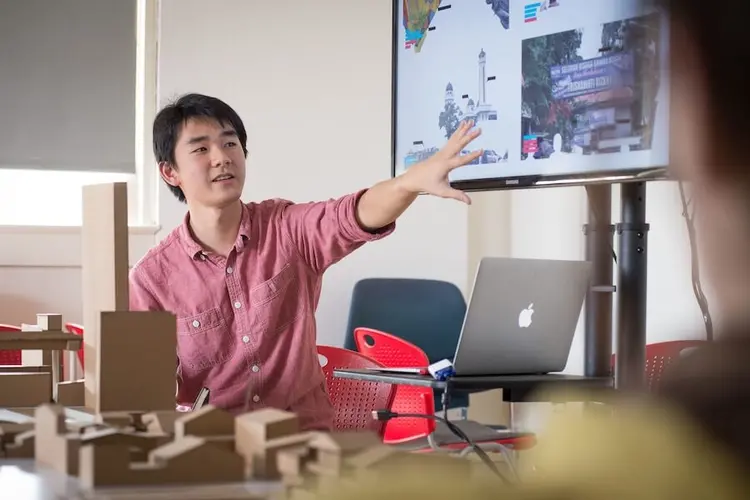College of Fine Arts Applicants

Arts, Architecture and Design That Impact the World
The College of Fine Arts is comprised of nationally and internationally recognized artists and professionals within five schools, renowned for our comprehensive studio and conservatory-style programs situated within an interdisciplinary, cutting-edge research university.
Our creative community is made up of students and faculty who are audaciously creative trailblazers, pushing boundaries to influence and impact the world around them. As a student in the College of Fine Arts, you’ll be the kind empowered to transform your field through critical inquiry and creative production.
What to know before you apply
Portfolios. Pre-screenings. Auditions. Applying to a school within the College of Fine Arts requires a few extra steps in the application process. Learn more before you submit your application.

Portfolio
A portfolio allows you to showcase your creative works as part of the application process and will be reviewed by faculty in the Fine Arts program you’re applying to. Your admission decision is based on a holistic review of both that portfolio and your other application materials.
At Carnegie Mellon, all visual arts programs and select performing arts programs require a portfolio. Portfolio requirements vary by program, so make sure you review the program-specific information below. If you're applying to multiple programs that require a portfolio, you will need to submit a separate portfolio for each, and the contents of each portfolio should be tailored to the portfolio requirements of each program.

Pre-screening
A pre-screening is the first part of the audition process for our School of Drama programs. Applicants must complete a pre-screening and then be invited for an audition. Together, the pre-screening and audition are the main basis for your admission decision.
Both the pre-screening and audition are specific to the program you’re applying to, so be sure to review the pre-screening information below for the School of Drama.

Audition
An audition is required for most programs within our Schools of Drama and Music and allows you to showcase your creative talents for the review committee. What’s included in your audition will vary depending on the program you’re applying to, so be sure to carefully review the requirements for your program.

Interviews, Essays and More
Some programs may have additional application requirements above and beyond the portfolio or audition, including interviews, essays, video submissions, resumes or additional recommendations. These items provide the review committee more context about who you are and your creative abilities. Because requirements vary by program, be sure to carefully review all additional application requirements.
College of Fine Arts Additional Application Requirements
Each school within the College of Fine Arts has different additional application requirements. Learn more below, and be sure to review the in-depth requirements provided by your program of interest. Please note that these additional application materials are submitted to and reviewed by faculty within your program of interest. If you have questions about the additional requirements, how to submit your materials or the review process, please contact the program directly.